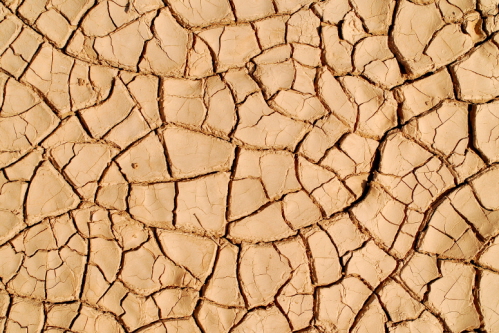The consideration of both human activities and natural phenomena related to drought is needed to preserve increasingly scarce global water supplies. Images of drought stricken areas in California, Brazil or China have become commonplace in recent years. So far researchers have looked at drought as a purely natural and climate imposed phenomenon, while they viewed water use as simply a socio-economic issue.
The current California drought for example has severely affected the state’s environment and economy. Storing water in reservoirs and extracting groundwater increase evaporation and decrease groundwater levels, worsening the drought. It demonstrates how strongly water and society are intertwined during drought periods.
Dr Anne Van Loon, Lecturer in Water Sciences from the University of Birmingham who led the research, said: “Society is not a passive victim of drought; it responds to water shortages and these responses again influence water levels in reservoirs, aquifers and rivers. Severe droughts in human-dominated environments, as experienced in recent years in China, Brazil and the USA, cannot be seen as purely natural hazards because human activities play a role.”
Europe suffered a severe drought last summer with high heat causing soils and plants to dry out, thus helping to spread wildfires. Agricultural and hydropower production decreased, whilst rivers fell to record low levels even shutting down inland water transport in some places. Water and drought policies vary across the EU and more work is needed to understand their influence on drought.
Thorsten Wagener, Professor of Water and Environmental Engineering in the Department of Civil Engineering and Cabot Institute Theme Leader in Water at the University of Bristol, said: “We live in a time where our planet is dominated by human activity at unprecedented scale. We have to better understand the complex interaction between society and the hydrological cycle if we want to develop successful strategies for the sustainable management of our water resources.”
Direct effects of people on drought are water abstraction, reservoir building and water transfer. Indirect effects are changes to the land surface by people that can affect the development of drought by altering hydrological processes. These can include evaporation from land to air (evapotranspiration) and the rate at which water penetrates the soil (infiltration), as well as surface runoff and storage of water.
These direct and indirect influences can be long-term, big engineering projects for reservoirs or gradual urbanization, and short-term, more efficient irrigation methods, different crops. Short-term adaptation to drought can decrease the severity of the next drought or even cause within drought changes influencing the drought end.
The water researchers say that defining the causes of drought is crucial in deciding whether management should focus on making changes to cope with climate-induced drought (adaptation) or tackling the actions that lead to human-induced drought (mitigation).
Paper
‘Drought in the Anthropocene’ by Anne F. Van Loon, Thorsten Wagener et al in Nature Geoscience
